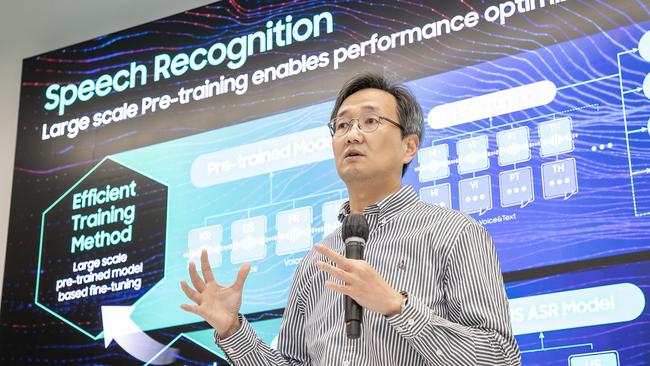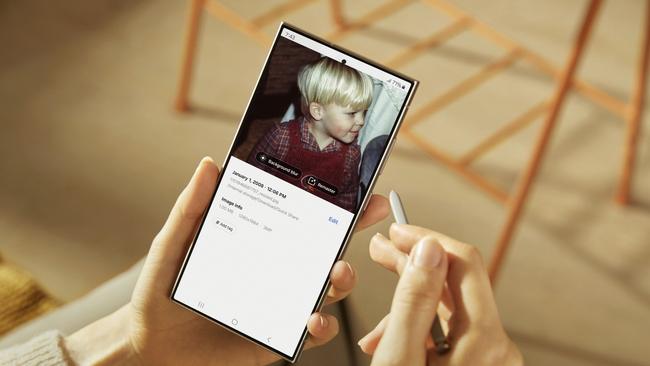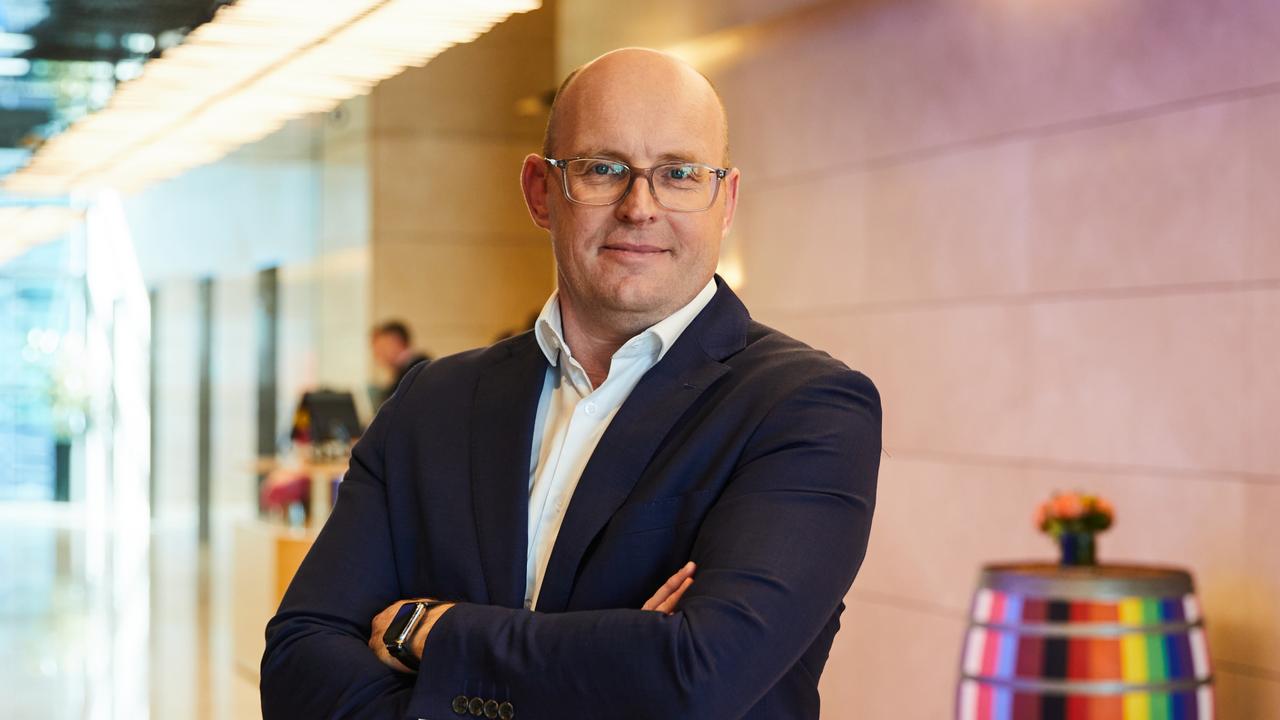Samsung chatbot to use your voice to speak foreign languages
Samsung wants to build an AI chatbot that knows you so well it can talk just like you in several different languages.

Samsung wants to build an AI chatbot that knows you so well it talks just like you in several different languages.
The chatbot would be so personalised that it uses all the same speech patterns as you, emphasising the same syllables and pausing just as you would on certain sentences, according to YJ Kim, an executive vice-president and head of the artificial intelligence team in Samsung’s Mobile eXperience business.
But there’s no guarantee the product would be free, nor that the new AI features released with the new Galaxy S series this week will remain free after 2026.
At a roundtable on AI in San Jose in the US last week, Mr Kim said the company had even considered integrating a chatbot into its latest phone line-up, but later decided against it.
Users would form a better understanding of the technology by using AI features in individual apps rather than accessing a single point via a chatbot, he said.

While Samsung decided against launching its new phone line-up with a chatbot this year, it is still working towards a future where each customer has their own AI assistant that is helpful and acts just like them.
“So the personalised AI that we are envisioning is basically one where each user has in the palm of their hand their own device that provides their own AI assistant,” Mr Kim told The Australian with the help of a translator.
“A simple example of how (personal it is), right now if we use AI translation, what I say is delivered in a generic voice, but in the future it could be that our devices could generate what I’m saying in another language with my voice.”
This particular AI assistant would also be able to pre-emptively respond to others with the same cues as the user, he said. “It will understand exactly what you want to say, or what you want to do, and then be able to deliver that to whoever I want to deliver it to. That’s the kind of personalisation we envision.”
It’s not clear when Samsung will deliver such a product to its phone customers, but the company wants AI to be “trendy”.

“AI is no longer just something of an interest for the general public. It’s actually about time that we embed AI in the products and services that people generally use,” he said. “So we are starting that with Galaxy S24 to create a new trend with our users.”
There was also insight into the future of Samsung’s lesser known chatbot Bixby, and how it will become the general intermediary between customers and its Galaxy AI products. Bixby was born at Samsung Research America, where the AI roundtable was held.
The Galaxy AI product, which mostly leverages the company’s internal large language model known as Gauss and some of Google’s own AI engine Gemini, for now exists in the company’s pre-loaded apps. It includes transcription for recordings, summarisation and formatting of documents, the ability to style text in different tones, translation across calls and texts and photo editing, with the ability to remove objects and use AI to replace any gaps in an image.
Those features, while exclusive for now, will also be integrated into some of the 2023 range, the Fold and S23 Ultra, after software updates later this year.
While Galaxy AI was free at the time of launch, that’s only guaranteed until the end of 2025, a far shorter period than the company’s security and operating system updates for the Galaxy S24 series that arrive with a seven-year promise. Mr Kim said that was due to the sheer speed of which AI was developing.
“As you can understand, AI technology is advancing at a very rapid pace so at this point, we cannot imagine the future and what kind of services that we will combine and deliver together with our AI technology,” he said.
Joseph Lam was a guest of Samsung in San Jose.







To join the conversation, please log in. Don't have an account? Register
Join the conversation, you are commenting as Logout